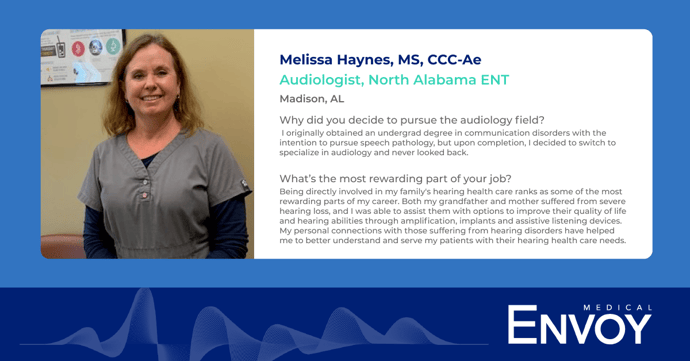What is the Over the Counter Hearing Aid Act?
by Envoy Medical Staff Member, on July 31, 2021
On July 9th President Biden signed a broad-reaching executive order designed to promote competition in the American Economy and establish fair, open, and competitive marketplaces for American businesses and consumers. In his address, Biden singled out the Over-the-Counter Hearing (OTC) Aid Act passed in 2017 but not yet enacted due to being held up on labeling issues. Biden urged Congress “To consider issuing proposed rules within 120 days for allowing hearing aids to be sold over the counter.”
For Americans with hearing loss 50 years and older in the US, only 1 in 7 uses hearing aids, and for working adults (50-59) the rates of hearing aid use decline to less than 1 in 20. Access to care and lack of affordability have been identified as key issues. The OTC Hearing Aid Act hopes to address both access and affordability.
The OTC Hearing aid act was passed in 2017 and removes the barrier of having to go through a primary doctor and an audiologist or hearing aid dispenser in order to purchase a hearing aid.
The bill directed the FDA to issue regulations containing both safety and labeling requirements within the next three years and they are now overdue. The final draft is expected within the next 18 months.
The pathway to purchase or even just try hearing aids is complicated and involves multiple steps for consumers who perceive they have hearing loss.
First, they are required to have a medical exam to rule out a serious medical problem or sign a waiver with a licensed hearing care provider.
Additional steps require going through an Audiologist or a Licensed Hearing Aid Dispenser. Requirements include a hearing test, approval by the licensed practitioner, and then an evaluation to determine what hearing aid is the best fit for their particular loss. Hearing aids can only be purchased device through a licensed provider.
Simply by choosing an Audiologist or Hearing aid Dispenser consumers are limiting treatment options because each provider contracts with just a few brands.
This becomes a problem if you move or change audiologists, as you may have to change your hearing aids as well because other locations might not be able to service the product you have.
Audiologists and dispensers often bundle care so the cost for future appointments and services is bundled with the cost of the hearing aid. The result is high-cost hearing aids which are not affordable to many, leaving them with no other way to treat their hearing loss.
Allowing hearing devices to be sold over the counter and removing the requirement of a medical exam or waiver allows a consumer to access care in a single trip to the store. This will help make devices more easily available while also expanding the market to increase competition, lower costs, and create more options for consumers.
The OTC act will only allow devices designed for those with mild to moderate hearing impairment to be sold over the counter. Those with more severe hearing loss will still need to see a specialist for more powerful treatment options including hearing devices and hearing implants. Increasing the number of people who treat their hearing loss in the early stages is an important step towards mitigating the negative effects of hearing loss and improving quality of life.
Meet Esteem Partner Melissa Haynes, MS, CCC-Ae

Envoy Medical hears your frustration on lack of Medicare/Medicaid coverage for specialty hearing implants like the Esteem®. We support you and other advocates who continue to lobby Congress for better access to treatments that improve hearing health. The “hearing aid exclusion” within Medicare has denied many older adults with hearing loss access to hearing technologies and healthcare services that can help them remain healthy, connected, and able to care for themselves. We owe it to our seniors, our community, and ourselves to address this issue before more untreated and undertreated hearing loss gives rise to other preventable and more serious healthcare costs. You can make a difference by making your voice heard by your elected Senators and Representatives.
Click here to request a letter template to send to your representatives and make your voice heard!


